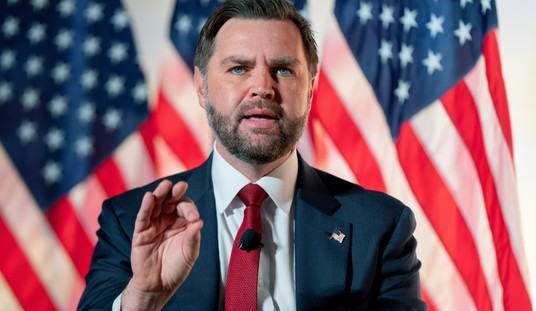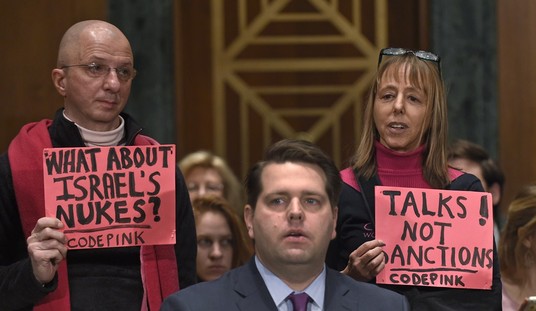On March 6, 2013, Senator Rand Paul (R-Kentucky) began comments on the Senate floor during the confirmation vote for President Obama’s nominee for CIA Director, John Brennan. What began as a normal day in Congress turned into an epic 13-hour filibuster by Paul that began at 11:47 a.m. on that Wednesday and did not end until 12:39 a.m. on Thursday…exactly 10 years ago today.
The issue at the time was unconstitutional drone strikes on American citizens and the Obama administration’s ensuing response. The previous September, the President approved a drone strike in Afghanistan, one that killed Muslim terrorist Anwar al-Awlaki (born in New Mexico) and naturalized American citizen Samir Khan. A following strike in October killed Awlaki’s 16-year-old son, a Colorado native.
Republicans, including Rand Paul, began questioning the constitutionality of employing the military against American citizens. It was, at best, a murky situation abroad. Would the Obama administration and its successors approve of using those same actions at home, if they could justify them under the label of “terrorism?”
At the time Politico reported on questionable response to such hypotheticals from Attorney General Eric Holder.
Holder refused to rule out the possibility that, in extreme circumstances, the executive branch might order lethal force against an American inside the U.S., citing examples such as the Japanese attack on Pearl Harbor or the Sept. 11 terror attacks.
Holder told the Senate Judiciary Committee earlier in the day that if there had been anti-aircraft missiles positioned around New York and Washington on the day before the Sept. 11 hijackings, they might’ve enabled the president to destroy the airliners at the cost of hundreds of American lives, as compared with the thousands who were actually killed when they crashed into the World Trade Center and the Pentagon.
“What would we all give to have had those Patriot missile batteries available on Sept. 10, 2001 in New York and Washington. It would have meant we lost a planeload of American citizens and would have saved thousands” of lives, Holder said.
On drone strikes, Holder emphasized that the administration’s position involved a “hypothetical” scenario and pointed out that the United States has never conducted a drone strike on its own soil, “has no intention of doing so” and that it was “unlikely to occur.”
Paul was seen back then as standing on his libertarian roots. He was always well known for being anti-war and anti-intervention – an “isolationist” to some. As it turns out, he was more than principled, he was also prescient. Given where we are 10 years after his filibuster – in an era when parents are declared terrorists by the FBI and people are being sentenced to prison just for showing up in the general vicinity of the protests of January 6, 2021 – the question of what measures the American government can and should take against its own citizens is an especially important one.
Paul’s filibuster became increasingly inspiring as the day wore on. His Republican counterparts, understanding what was happening, began taking turns posing lengthy, bloated questions in order to give him moments of rest. The Kentucky Senator said he sustained himself with candy, and tried not to drink very much water. By the end of 13 hours he was sore, hoarse, and dehydrated…but he had also reached a new level of notoriety in American politics.
People who had never seen more than a minute of C-SPAN in their entire lives were glued to the broadcast. Social media, which was just beginning its monopoly in American culture, was trending with the filibuster. We’d had other stories break into pop culture before, but this was the first event on the floor of Congress that I can recall spilling out from the chambers, to social media, and into popular culture. With so many ways to share what would otherwise have been another boring C-SPAN moment for the political nerds, Paul’s act of defiance became household talk the next day. Even those who didn’t follow politics on social media were seeing the story on their news and talk shows. The impact was unavoidable.
Paul became a hero of sorts, both to the right and anyone who was anti-war at the time. He has since survived at least two frightening physical attacks, including one from his neighbor that left him with serious injuries. The son of Ron Paul has found out the hard way that being a leading voice also makes you a target for the deranged, but the moral of the story is that on that day, Rand Paul did become a leader and America has been better for it.
He did stand up, literally, for what he believed in, without apology. That is a rare quality in American politics these days.
So as we are reminded of this piece of historical trivia this day – the day Rand Paul filibustered the American Senate for 13-hours straight – let us also remember what he inspired, and what happens when a politician decides to stand on genuine principal…America will respond. No one else in the Republican party had the notion to stand and fight that day. It was only when one of their own took it upon himself that others fell behind to support him. Most of America wasn’t even paying attention to the potential moral boondoggle of the droning question until that day. Americans were reminded about the sanctity of our Constitution and why, even with the new threat of terrorism at our doorstep, we must protect the rights of due process. Ted Cruz (R- Texas) said as much at a hearing earlier that day.
“I find it quite puzzling that [the administration] didn’t respond, ‘Of course not, we never have in history of this country. We never will. The Constitution forbids it,” said Sen. Ted Cruz (R-Texas), who grilled Holder in a Judiciary Committee hearing the same day. “It’s remarkable that they treated it as a difficult question.”
We are starving for strong leadership, so much so that when we see it these days, we have a tendency to become almost cultish about it. That is simply a symptom of the disease that has taken over the body politic.
The antidote is more men who are willing to say the unpopular things (and fewer voters punishing them for it, thank you very much), and take the risky stances even when the battle really can’t be won. Of course, in the end, John Brennan got the appointment. It was always going to happen with a Democrat majority.
But what we also got was a 13-hour vision of what can be inspired when good men do something.
P.S. Filibustering takes a lot of words. One tactic is to read passages from books. Here is a list of the books Rand Paul read from during his time that night, courtesy of The Intelligencer:
- Alice in Wonderland, Lewis Carroll, 1865
- The Road to Serfdom, Friedrich von Hayek, 1944
- “U.S. Tightens Drone Rules,” Wall Street Journal, Nov. 4, 2011
- The Spirit of the Laws, Montesquieu, 1748
- “Attorney General Eric Holder: US Government Has Authority to Target & Kill US Citizens on US Soil,” FireDogLake, March 5, 2013
- “Obama’s new view of his own war powers,” Glenn Greenwald, March 31, 2011
- Oath of Office, Vasan Kesavan, Heritage Foundation
- “How Team Obama Justifies the Killing of a 16-Year-Old American,” Conor Friedersdorf, The Atlantic, Oct. 24, 2012
- “On Drones, Contra Krauthammer,” Kevin D. Williamson, National Review Online, Feb. 15, 2013
- Dissenting opinion in Lochner v. New York, Oliver Wendell Holmes, April 17, 1905
- The Promise of American Life, Herbert Croly, 1909
- Unconstitutionality of Slavery, Lysander Spooner, 1860
- Rehabilitating Lochner: Defending Individual Rights against Progressive Reform, David E. Bernstein, 2011
- The Bill of Rights, United States Constitution, 1789
- “The Federal Reserve’s not-so-golden rule,” George Will, Washington Post, Feb. 27, 2013
- Letters to Bishop Creighton, Lord Acton, 1887
- Lawfulness of a Lethal Operation Directed Against a U.S. Citizen who is a Senior Operational Leader of Al Qa’ida or An Associated Force, Department of Justice, undated
- The Federalist #51, James Madison, 1788
- Letter From a Birmingham Jail, Martin Luther King, Jr., 1963
- Nineteen Eighty-Four, George Orwell, 1949
- Victory or Death, William Barrett Travis at the Alamo, Feb. 24, 1836
- “A Bad Idea Gets Worse,” Charles Pierce, Esquire, Feb 21., 2013
- The Ten Commandments, God, 14th to 6th century B.C.E.
- “This Isn’t Hard, Mr. President: Do You Think You Can Kill Us on American Soil or Not?” Conor Friedersdorf, The Atlantic, Feb. 15, 2013
- “How Obama Transformed an Old Military Concept So He Can Drone Americans,” Spencer Ackerman, Wired, Feb. 5, 2013
- “Assassinations by remote control,” Eugene Robinson, Washington Post, Feb. 8, 2013
- “U.S. Drones Can Now Kill Joe Schmoe Militants in Yemen,” Noah Shachtman, Wired, April 26, 2012
- “America’s Third War,” Micah Zenko, Council on Foreign Relations, April 23, 2012
- CCR Condemns Targeted Assassination of U.S. Citizen Anwar Al-Awlaki, Center for Constitutional Rights, Sept. 30, 2011
- “Plan for hunting terrorists signals U.S. intends to keep adding names to kill lists,” Greg Miller, Washington Post, Oct. 23, 2012
- “CIA Drones Kill Large Groups Without Knowing Who They Are,” Spencer Ackerman, Wired, Nov. 4, 2011
- How to Ensure that the U.S. Drone Program Does Not Undermine Human Rights, Human Rights First, Dec. 2012
- “Police employ Predator drone spy planes on the home front,” Los Angeles Times, Dec. 10, 2011
- ACLU Report on Domestic Drones Finds Need for New Privacy Protections, American Civil Liberties Union, Dec. 15, 2011
- “Revealed: 64 Drone Bases on American Soil,” Lorenzo Franceschi Bicchierai, Wired, June 13, 2012
- “Domestic-Drone Industry Prepares for Big Battle with Regulators,” Spencer Ackerman, Wired, Feb. 13, 2013
- “Killing Americans on U.S. Soil: Eric Holder’s Evasive, Manipulative Letter,” Conor Friedersdorf, The Atlantic, March 6, 2013
- “Here’s Why the Government Thinks It Can Kill You Overseas,” Spencer Ackerman, Wired, March 5, 2013










Join the conversation as a VIP Member